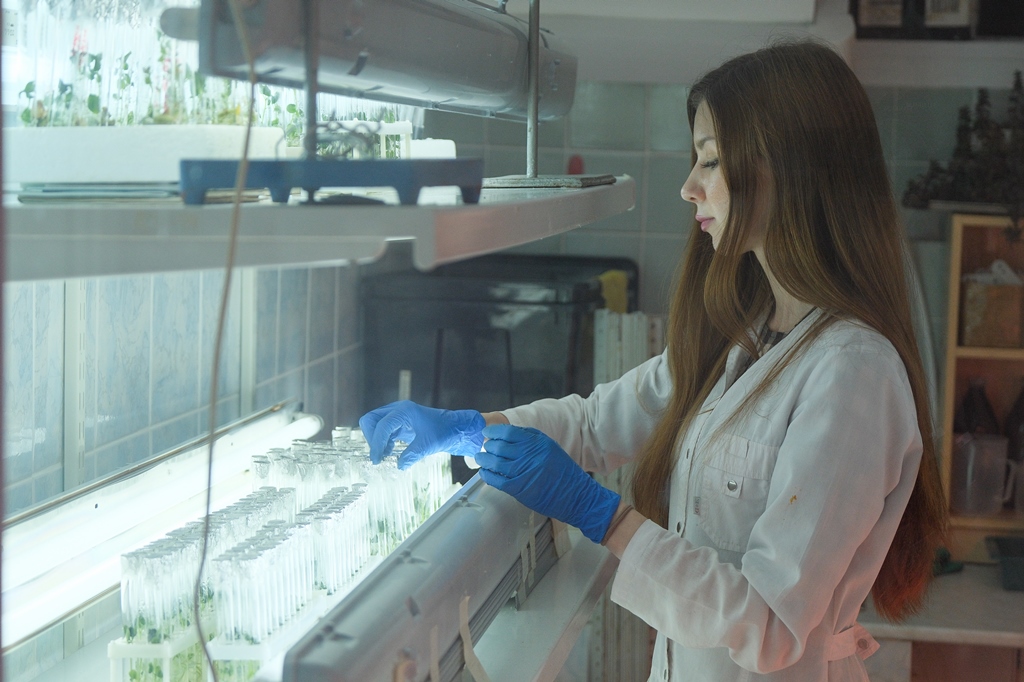Drought as one of the main harmful aspects of global climate change causes huge economic damage to agricultural production. Scientists from the Biological Institute of Tomsk State University and the Institute of Bioorganic Chemistry of the National Academy of Sciences of Belarus have found a way to protect cereal crops from stress caused by water deficit. The biologists have used a natural component — phytohormones (plant hormones)—as a tool to improve crop drought resistance. The results of the study were published in the journal Plants (Q1).
To protect crops, the biologists used steroidal phytohormones—brassinosteroids, which play a crucial role in physiological regulation. At the same time, this type of hormones acts as an adaptogen and increases plant resistance to a wide range of harmful effects.

“The effect of brassinosteroids on plants is species-specific and requires detailed study for effective use. In addition, the effect of phytohormones on plants depends not only on the plant species itself, but also on the concentration and method of influence,” explained Lilia Kolomeichuk. “We were the first to carry out a short-term two-hour pretreatment of barley plants with several members of the brassinosteroids group. Drought conditions can be modeled in the laboratory in different ways. We chose the model of a soil drought experiment, which most closely matches the real condition of agricultural lands.”
Pretreatment by soaking of seeds requires less hormone solution than watering or spraying plants, so this method is cheaper. In conditions of climate change and complexity of irrigation of large crop areas, such application of bioregulators is very effective.
Pretreatment of barley with brassinosteroids preserved plant biomass under drought conditions and significantly increased the activity of antioxidant enzymes that are mechanisms of plant defense under stress: superoxide dismutase increased by sevenfold and catalase by 36 percent. The study also evaluated gene expression of proline synthesis, which plays an important role in supporting the plant under water deficit.
Brassinosteroids used in the study were synthesized in the Laboratory of Steroid Chemistry at the Institute of Bioorganic Chemistry of the National Academy of Sciences of Belarus. These compounds are environmentally safe, as they are similar to natural plant hormones.